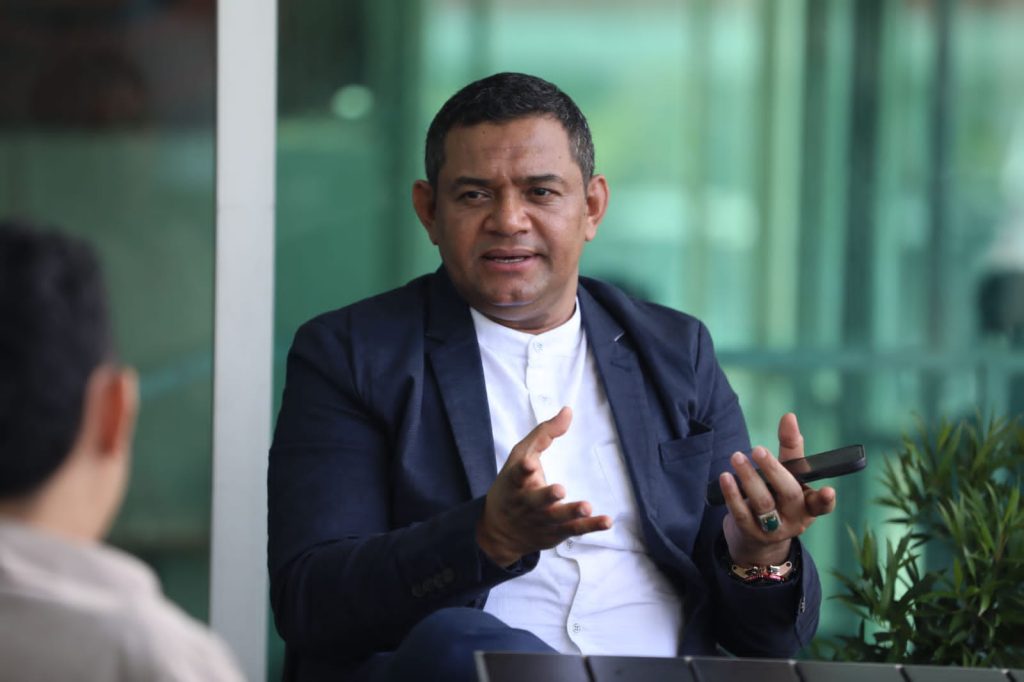IDNAround.com – The right to inquiry is the DPR’s right to conduct an investigation into the implementation of a law and/or government policy relating to important, strategic matters and having a broad impact on the life of society, nation and state which is alleged to be in conflict with statutory regulations.
What is meant by “implementation of a law and/or government policy” can be a policy implemented personally by the president, vice president, state minister, TNI commander, National Police Chief, Attorney General, or the head of a non-ministerial government institution.
Fachri Bachmid’s response
Constitutional and constitutional law expert Fahri Bachmid responded to the discourse of rolling out the right to inquiry by the DPR to investigate allegations of fraud in the 2024 elections. Fahri was of the opinion that, in essence, the framers of the 1945 Constitution had placed a “checks and balances” mechanism in the context of institutional relations and attributive authority owned by state institutional entities. , in state administration, including the DPR, President, MK, and KPU in the context of holding elections.
“We can observe the constitutional structure in terms of Article 20A, namely that in carrying out its functions, the DPR is equipped with tools called the right of interpellation, the right of inquiry and the right to express opinions. This is in the context of supervision of the executive institution in carrying out state government, not intended to assess or discuss “related to the election process or results with all its implications,” said Fahri, in a statement received by the editorial team, Friday (23/2).
He continued, the normative construction of Article 22E Paragraph (5) of the 1945 Constitution concerning Elections has stipulated that elections are held by a national, permanent and independent general election commission.
“Thus, if the DPR tries to make a policy of extensifying its authority, including using questionnaires to assess and investigate election processes and products, this is certainly a wrong path and is far from the principles of the constitution, which has firmly placed the differentiation of constitutional authority in each state institution ,” he explained.
Fahri explained that relations for resolving election disputes have been determined limitatively in the constitution. Constitutionally, settlement channels are not known to be used outside of those specified. The provisions of Article 24C Paragraph (1) of the 1945 Constitution emphasize that the Constitutional Court has the authority to decide disputes regarding the results of general elections.
“In my opinion, that is the way that should be used. Because, if the right of inquiry is to be enforced, of course it will be very destructive to the constitutional system. Questionnaires are a cesarean operation that is not recognized in the election dispute resolution system in this republic. It does not exist in the legal framework for elections us,” he stressed.
Fahri explained that the right to inquiry is an instrument given to the DPR to carry out investigations into the implementation of laws or government policies that are considered to have an important, strategic and broad impact on the lives of society, the nation and the state and are suspected of violating statutory regulations. The constitutional basis for the use of the Right to Inquiry is based on the 1945 Constitution, especially the provisions of Article 20A paragraph (2), and derivatively, the DPR’s right to inquiry institution refers to Law Number 27 of 2009 which has been revised by Law Number 17 of 2014 concerning the MPR, DPR, DPD and DPRD (MD3) along with Law Number 42 of 2014.
He explained that within the framework of constitutional law, the right to inquiry, together with the right to express an opinion and the right to interpellation, is an instrument of legislative supervision of various policies taken by the executive or government.
“However, in the context of election issues, the use of the right to inquiry is absurd and of course unconstitutional, not recognized in our electoral law. The explanation in Article 79 Paragraph (3) of Law Number 17/2014 concerning MD3 clearly states that the right to inquiry is intended “to supervise executive institutions, which include the President, Vice President, Ministers, TNI Commander, National Police Chief, Attorney General, and heads of non-ministerial government institutions,” he said.
Thus, he continued, if the right to inquiry is used as a tool to unravel election problems, in essence it has entered the realm of election disputes, which are actually the jurisdiction of the court. “The solution is the absolute competence of the Constitutional Court, not the DPR,” he added.
Fahri suggested that parties who are dissatisfied with the election results orderly use the available legal instruments or election legal framework. According to him, there are many constitutional channels that can be used if you feel there is fraud in the implementation of the elections, namely through Bawaslu, DKPP, or submitting a dispute to the Constitutional Court. “It is more genuine which is of course based on the principles of constitutionalism,” concluded Fahri.
Read Also : Special Offer from AirAsia: Free Seats and Discounts on Flights Abroad!
Get the latest information on daily popular news from IdnAround.Com. For other collaborations, you can contact our email or other social media.

